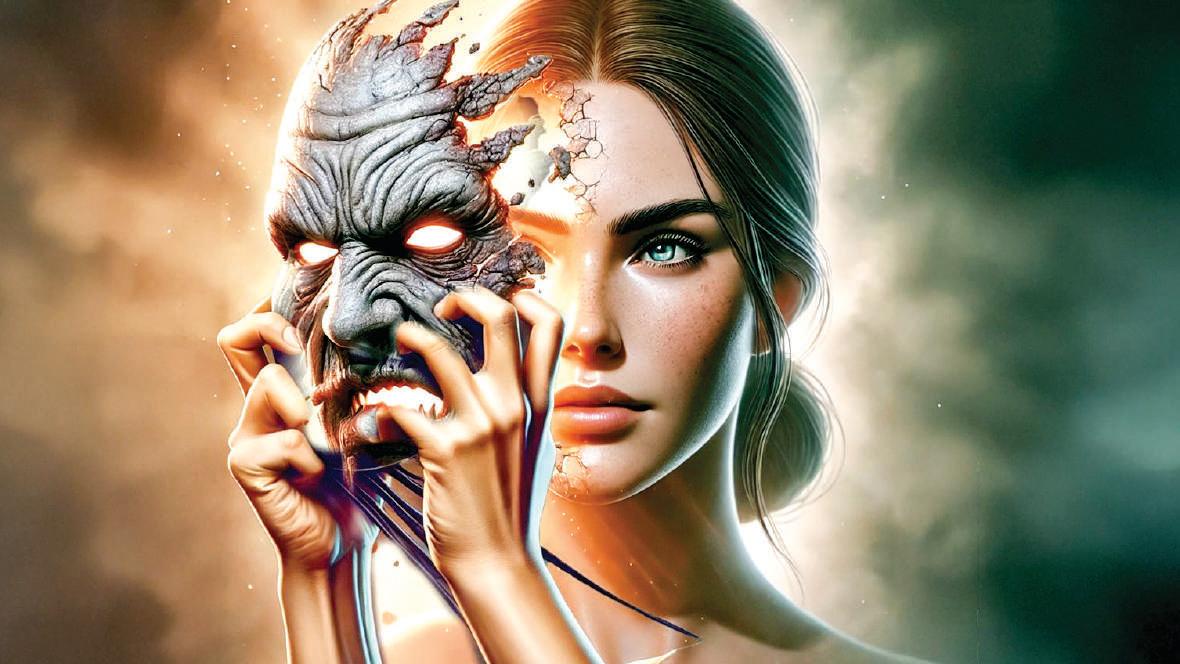
Right since our birth, we are trained to conduct ourselves according to others' expectations. Everything about us seems to come from outside; every single identity is social. We write in prescribed ways, speak in acceptable tones, worship in traditional patterns, hold sanctioned beliefs about life, and shape our responses to please family, peers and lords. This conditioning runs so deep that we unconsciously continue our perpetual performances. The same pattern extends seamlessly into professional life as well, where the stakes of impressing others appear even higher, and the consequences of failing to do so seem more dire.
In today's world, where lives seem to be lived online, this tendency manifests most visibly on social media. Here, genuine expression often takes a backseat to calculated performance. We carefully curate content designed to sparkle in followers' eyes, prioritising potential 'likes' over authentic insights. Our posts become exercises in strategic timing and careful editing rather than authentic sharing. This behaviour stems from a fundamental desire for recognition and respect, yet we must question: What value truly exists in such carefully manufactured presentations? When we examine this compulsion to impress others, we find that at its core, it is an attempt to impact minds. If such influence is inevitable, why not channel it toward genuinely beneficial ends? The problem lies not in the act of making an impression, but in the hollow motivation behind it-the mere gratification of ego. This pursuit of external validation often leaves us feeling more empty than fulfilled, trapped in an endless cycle of seeking approval that can never truly satisfy.
Look to history's influential figures-leaders, thinkers, spiritual guides.
Esta historia es de la edición November 24, 2024 de The Sunday Guardian.
Comience su prueba gratuita de Magzter GOLD de 7 días para acceder a miles de historias premium seleccionadas y a más de 9,000 revistas y periódicos.
Ya eres suscriptor ? Conectar
Esta historia es de la edición November 24, 2024 de The Sunday Guardian.
Comience su prueba gratuita de Magzter GOLD de 7 días para acceder a miles de historias premium seleccionadas y a más de 9,000 revistas y periódicos.
Ya eres suscriptor? Conectar
₹G20' TO BE RELEASED IN APRIL ON PRIME
LOS ANGELES [US]: Viola Davis is all set to come up with the thriller 'G20'.
FREEZE 'THE WILD ROBOT' FRAME COMING ON JAN 24
Universal/DreamWorks Animation's highly anticipated animated feature, 'The Wild Robot', will be available for streaming on Peacock starting Friday, January 24.
BEER, BOOKS AND CONVERSATIONS: A CITY'S CULTURAL SOUL
FEMALE GAZE SANDHYA MENDONCA I find my city becoming duller by the year.
Hyundai teases Creta electric ahead of 2025 launch
Hyundai has officially teased the upcoming Creta Electric, its latest electric SUV, which is anticipated to launch at the 2025 Bharat Mobility Global Expo.

China proposes export controls on critical EV technology
China is planning to impose new export restrictions on technologies used to extract minerals vital for the global electric vehicle (EV) industry, signalling an escalation in its ongoing tech rivalry with the United States, CNN reported.

BAJAJ AUTO DOMESTIC SALES SLUMPED IN DECEMBER, OFFSET BY RISE IN EXPORTS
In December 2024, Bajaj Auto's total sales (including two-wheelers and commercial vehicles) stood at 3,23,125 units, marginally lower by 1 per cent compared to 3,26,806 units in December 2023.
M&M records 16 per cent increase in December sales
Automotive company Mahindra & Mahindra (M&M Ltd.) witnessed a 16 per cent increase in overall automotive sales, with 69,768 units in December, the company stated on Wednesday in its exchange filing.
Maruti registers 30 per cent increase in December sales
In December 2024, Maruti Suzuki India sold a total of 178,248 car units, which is about 30 per cent higher than a year ago period.
EVs READY TO FLY, NO NEED FOR FURTHER SUBSIDY: GOYAL
India's electric mobility space is \"absolutely ready to fly\" and there is no need for newer incentives or subsidies, Commerce Minister Piyush Goyal said Friday, after a meeting with officials from various ministries and stakeholders of the Indian EV ecosystem.

LONELINESS: THE 21ST CENTURY PANDEMIC
We are born 'lonely'. When a child is born, the first instinct is to cry. This crying is not just a physical or biological reflex but also a psychological expression of distress. A newborn instinctively tries to hold onto something. If you offer your finger, the baby will grasp it tightly with its little fist. This inherent loneliness persists throughout a person's life-at three, thirteen, thirty, fifty, or eighty years old-craving something to hold on to. This is because the ego, the I-tendency we are born with, is by definition lonely.